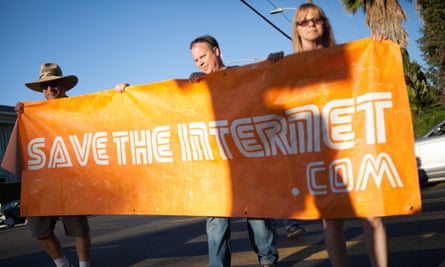2015 looks set to be another year of important developments in media law. This piece highlights some of the key areas for media professionals to monitor. One obvious subject that isn’t included here is data protection. It’s so vast and important that The Guardian is devoting an entire article to it later this month.
Copyright and piracy
With a view to making our copyright system better suited to the digital age, in November, media lawyers saw the arrival of the long-awaited final stages of the Hargreaves recommendations. They include a series of new statutory copyright exceptions [PDF] around quotation and data mining. 2015 will see whether the changes are for the better. The law has also been changed to allow people to make more use of creative content protected by copyright, for the purpose of caricature, parody or pastiche, without having to obtain the permission of the rights holder. Expect to see an increase in sampling and artworks, especially by musicians and cartoonists, with a consequential increase in court actions testing the boundaries of the new exceptions.
On the other side of the fence, 2015 will continue to see online piracy causing problems and the industry trying a mixture of hard and soft measures to control it. In July this year, a new industry scheme, Creative Content UK, was launched aimed at promoting legal entertainment online and establishing a system of education and warnings for internet users whose connections are being used to illegally share films and music.
In November, the high court ordered six of the UK’s leading internet service providers to block a total of 53 web sites, which brings to 93 the total of blocked sites providing access to such content since the first restrictions began in 2012.
November also saw a new EU commission take charge, with harmonising copyright reform high up on their agenda. Expect to see continued attempts to break down the national silos of telecoms regulation, copyright and data protection legislation, with a view to their greater harmonisation and the completion of an EU digital single market. Some are predicting one-stop shopping to ease consumer access to content from other EU-member states and copyright levies relating to use on the web.
Net neutrality
The battle over how best to protect and promote an open internet will continue. Deciding whether to entrust the internet to government control or the control of the telecommunications companies or internet service providers (ISPs) will continue to be a difficult call. Net neutrality or open internet rules work on the basis that all traffic on the internet should be treated equally and that consumers should be able to use the internet more or less how they please. In the US (but see this as reflecting the battleground more widely), there is an ongoing battle over how the Federal Communications Commission (FCC) should classify broadband internet service providers.
The FCC is considering reclassifying ISPs as “telecommunications services” as opposed to their current designation of “information services” which would give the FCC far more power to regulate ISPs.

Edward Snowden and privacy
Talking of the internet, a global study of more than 20,000 internet users released in November by the Centre for International Governance Innovation and Ipsos revealed that 60% of internet users have heard about Edward Snowden and of those aware, 39% have taken steps to protect their online privacy and security as a result of his revelations about the Prism/Tempora programme. The obtaining, use and retention of personal data by state agencies and commercial companies has come under intense scrutiny since then. 2015 will see increased awareness of online privacy among consumers. In the UK, this will manifest itself in more people using subject access requests under the Data Protection Act. There will also be further legal challenges to the way the police have been using the Regulation of Investigatory Powers Act to monitor the activities of journalists.
Following on from the Court of Justice of the European Union (CJEU) ruling against Google Spain, there will undoubtedly be more take down requests, not only impacting Google but also other tech comapnies such as Microsoft, Facebook and Yahoo.
The increasing influence of the European Commission and the CJEU
The Google Spain right to be forgotten case was one of the major events of 2014 and the ramifications will continue to reverberate in 2015. The CJEU will continue to flex its muscles in areas around freedom of expression that are traditionally considered to be the remit of the European court of human rights (ECHR) in Strasbourg.
While media lawyers are all familiar with the role and rulings of the ECHR on issues of freedom of expression, we have been less cognisant of the potential of the CJEU. In 1995, there was a surprise court ruling on where a company could be sued for damages in the libel case Shevill versus Presse Alliance SA. Then in April 2014, there was the Digital Rights Ireland ruling that the Data Retention Directive was invalid followed not long after, in May, by the CJEU’s ruling against Google Spain. In June, a court in Ireland referred the issue of US “safe harbours” to the CJEU. Conjoined with these CJEU forays, the European parliament’s attack on what it regards as the anti-competitive nature of the big US internet giants will intensify in 2015.

Regulation
Although not law, the ongoing battle over media regulation is set to continue, especially with a general election due in May 2015. In November 2012, the Leveson report made recommendations for the independent self-regulation of the press.
In March 2013, the leaders of the three main political parties signed up to a new independent regulatory system, establishing a Leveson compliant process of independent verification (or “recognition”) for any new regulatory arrangements that resulted. On 30 October 2013, a royal charter [PDF] was granted which established the Recognition Panel to provide that independent verification.
In response, the print media set up the Independent Press Standards Organisation (Ipso), which started operation in September 2014. Ipso so far has published only one resolution. Rival regulator, the Impress Project is waiting in the wings. The Guardian, the Independent and the Financial Times have not signed up to Ipso. 2015 is undoubtedly going to see the battle lines converging, amid calls for Leveson part two into the extent of unlawful or improper conduct within News International and other media organisations, and into the way in which the police investigated those organisations, to take place as soon as the current criminal trials end.
Programmatic advertising
Programmatic advertising – display ads that are bought and sold using automated systems and processes such as real-time bidding – is growing at a huge rate. According to a recent study by research and strategy consultancy MTM on behalf of the Internet Advertising Bureau UK (IAB), almost £3 in every £10 spent on online display ads in 2013 were bought through programmatic technologies. The study shows that of the £1.86bn spent on display ads across the internet and mobile in 2013, 28% (about £500m) was traded programmatically.
A key issue here next year will be around how this data is used. Expect the lack of regulation around this area to feature as well.
Gill Phillips is the director of editorial legal services at the Guardian News & Media
More like this:
The importance of net neutrality for the connected car
How much do we care about our online privacy?
Advertisement feature: EU data protection reform: 12 things businesses need to know
To get weekly news analysis, job alerts and event notifications direct to your inbox, sign up free for Media Network membership.
All Guardian Media Network content is editorially independent except for pieces labelled “Brought to you by” – find out more here.

Comments (…)
Sign in or create your Guardian account to join the discussion